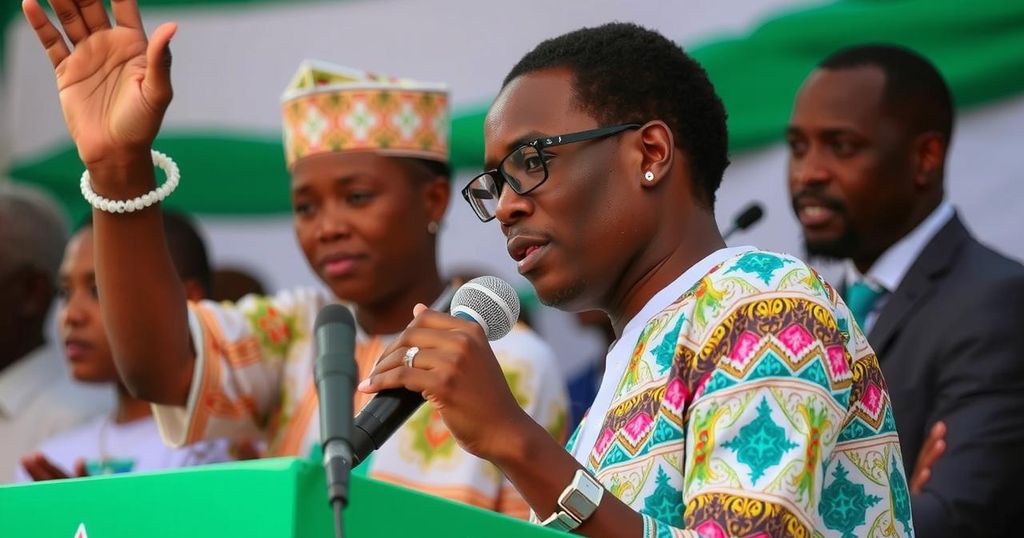Ghana Votes in Highly Competitive Presidential Election Amid Economic Turmoil

Ghanaians voted on Saturday in a closely contested presidential election between Vice President Mahamudu Bawumia and former President John Mahama. Economic challenges have dominated the campaign following a significant debt crisis. With President Nana Akufo-Addo stepping down, voters express a desire for change amid leaders’ contrasting visions for recovery. Initial results are expected soon after voting closed at 1700 GMT.
On Saturday, Ghanaians participated in pivotal presidential and parliamentary elections. The leading candidates, Vice President Mahamudu Bawumia and former President John Mahama, engaged in a tightly contested race against a backdrop of significant economic challenges. The elections were motivated by a desire for economic recovery following Ghana’s severe debt default and soaring inflation, issues that have dominated public discourse. With President Nana Akufo-Addo stepping down after two terms, the future leadership of the nation hangs in the balance.
As citizens cast their votes, economic conditions emerged as the central theme of the election. Ghana, known as the second-largest producer of cocoa globally and a key player in gold exports, has battled financial turmoil that includes negotiations for a $3 billion bailout from the International Monetary Fund (IMF). Voting concluded at 1700 GMT, with initial results expected shortly thereafter.
Public sentiment reflects a yearning for change, with many expressing dissatisfaction with the current economic situation. Voters voiced their aspirations for a leader capable of navigating the precarious financial landscape. Mahamudu Bawumia, under the ruling New Patriotic Party (NPP), aims to secure a historic third consecutive term but faces scrutiny over the outgoing administration’s economic performance.
In a hopeful tone, Bawumia asserted, “I am very hopeful of winning this election. I think we have done a lot of work with our message to the people, and the message has been well received.” Contrastingly, opposition leader John Mahama, who previously served as president, seeks to restore the economy through proposals that include establishing a “24-hour economy”. Both candidates hail from northern Ghana, heightening competition in a historically significant region.
The elections also brought attention to challenges such as illegal gold mining, which has exacerbated environmental degradation. President Akufo-Addo’s prior commitments to combat illegal mining have not fully materialized, raising concerns among voters about the integrity of ecological and economic systems. The outcome of this election will undoubtedly shape Ghana’s approach to its current economic hardships and set the tone for its political future.
Ghana’s political landscape has demonstrated considerable stability since the 1992 transition to multiparty democracy, with the two major parties—the ruling New Patriotic Party (NPP) and the opposition National Democratic Congress (NDC)—alternating power. Economic distress has become critical for voters, particularly in light of the country’s recent challenges, including a major debt crisis and the impacts of inflation. As the nation prepares for a leadership change following the upcoming transition, the direction of its economic recovery and governance is a subject of keen interest and concern among the populace.
The recent presidential elections in Ghana signify a crucial moment in the nation’s political journey. With economic issues at the forefront, candidates Mahamudu Bawumia and John Mahama represent divergent visions for the future, each contending with the implications of the past government’s performance. As Ghanaians await the election results, the choice they make will reflect their priorities in the face of economic adversity, signaling a critical juncture for the country’s governance and stability.
Original Source: www.france24.com






